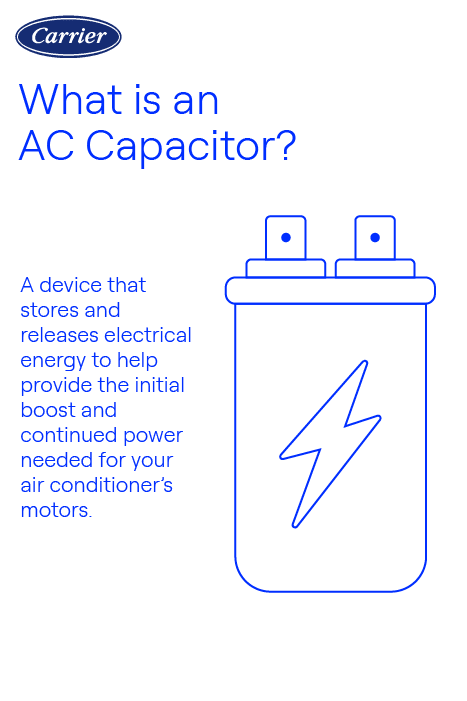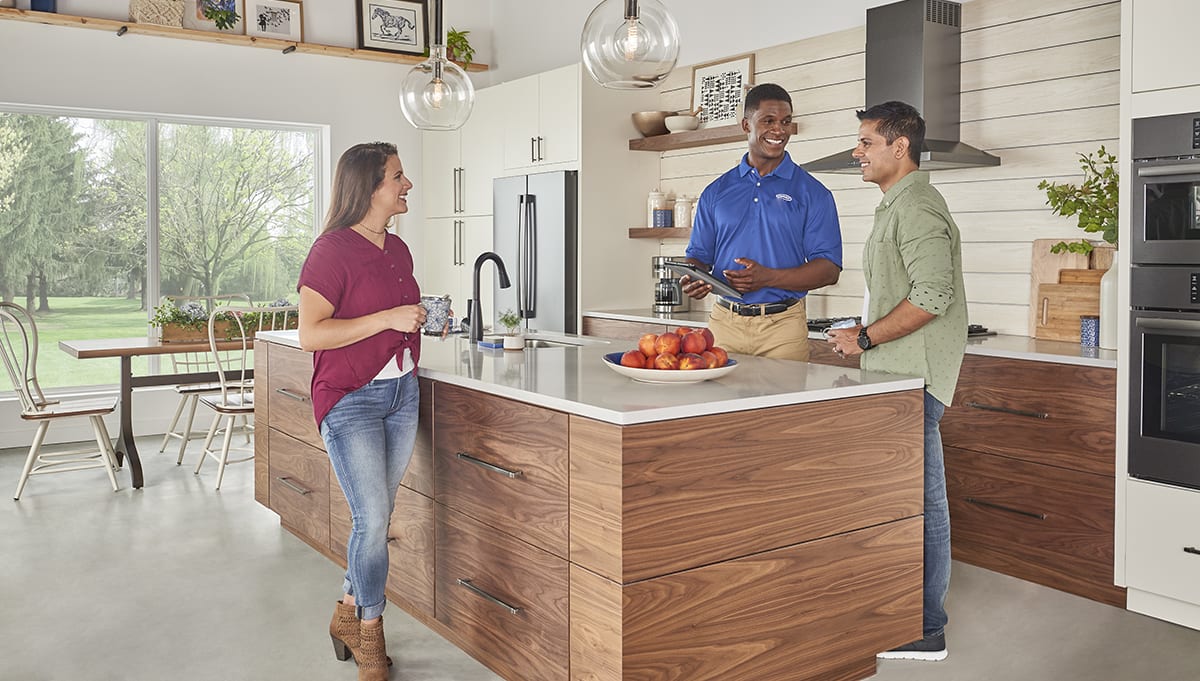Understanding AC Capacitors: A Comprehensive Guide
Welcome to our detailed guide on AC capacitors. If you're eager to learn more about air conditioner capacitors and their role in your HVAC system, you're in the right place. This guide will provide you with essential information about AC capacitors, their importance, and how they ensure the smooth operation of your air conditioning system.
What is an AC Capacitor?

Jennifer Fletcher, owner of Modern Air Solutions in Gurnee, IL, explains the importance of the capacitor in an air conditioning unit.
“A capacitor is a crucial electrical component in an AC system — it provides the burst of energy the unit needs to start up and helps keep the motors running smoothly,” Fletcher said. “Without a healthy capacitor, the air conditioner can struggle to start, run inefficiently, or fail altogether.”
How Do AC Capacitors Work?
Common Types of AC Capacitors
Start Capacitors
Run Capacitors
Dual Run Capacitors

Signs of a Failing HVAC Capacitor
- Reduced cooling capability: If your air conditioner takes longer to cool your home or fails to reach the desired temperature, it could be due to a weak or faulty capacitor that can't provide the necessary electrical charge to start the compressor.
- Frequent system cycling: If your air conditioner turns on and off rapidly, it could indicate a failing capacitor. The capacitor helps regulate voltage and keeps the compressor running smoothly. When it malfunctions, the compressor may struggle to start, causing the system to cycle more frequently.
- Increased energy usage: As the capacitor weakens, it requires more energy to perform its function, resulting in higher heating and cooling bills. Monitoring your energy usage can provide insights into the health of your air conditioner capacitor.
Choosing the Right Capacitor For Air Conditioner
- Compatibility of the capacitor with your AC model: AC capacitors come in various sizes and voltage ratings, so it's essential to choose one that matches your AC unit's specifications.
- Quality and reliability of the AC capacitors: Investing in a high-quality capacitor will not only improve the performance of your AC system but also ensure its longevity. Look for capacitors from reputable brands known for their durability and performance.
- Products recommended by the manufacturer: This ensures compatibility and prevents potential issues from using incompatible capacitors.

AC Capacitor Replacement Cost
How To Check Capacitor
Extend the Lifespan of Your Capacitor For AC Unit

Frequently Asked Questions About AC Capacitors
- AC won't start: The system struggles to turn on or won’t start at all.
- Humming noise: A buzzing or humming sound when the air conditioner attempts to start.
- Warm air: Blowing warm air instead of cooling.
- Short cycling: Air conditioner turns on and off frequently.
- Bulging or leaking capacitor: Visible swelling or leakage on the capacitor.
LEARN MORE ABOUT AC UNITS
- Find a Carrier Air Conditioner Expert in your area
- Air Conditioner Maintenance Tips
- Help with Air Conditioner Service
- Find Out How Do Air Conditioners Work
- Learn about air conditioning repair
- Factors and variables - "How Long Do Air Conditioners Last?"
- Why is my AC Fan Not Working?
- Is your Air Conditioner Not Cooling?
- Why you should get an AC Tune Up
- Learn about frozen AC coils
- What is a split air conditioning system?
- Is air conditioning bad for the environment?
- Learn about air conditioning unit compressors
- Learn about air conditioning installation
- Learn about different HVAC system types

